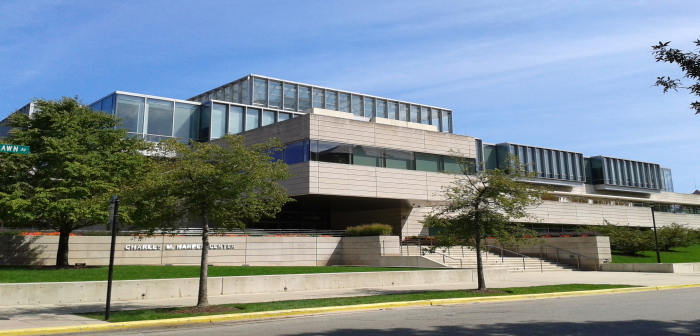The Global Social Impact Practicum is a course at Chicago Booth’s Rustandy Center for Social Sector Innovation, supported by Tata Trusts, one of India’s oldest and largest philanthropic organisations. A number of students pursue MBA in social impact and sign up for the Practicum.
Students in the 2016-17 GSIP course undertook a site visit to Bhubaneshwar in Odisha, India to help slum dwellers in the city in waste management. Working with Tata Trusts on urban habitat project, they examined the potential impact of entrepreneurship on waste management and developed a plan to get entrepreneurs interested in affordable housing, education, sanitation and other basic services.
Jing Chen, MBA ’17, was among the 10 students team who went to Bhubaneswar in December 2016 to study entrepreneurial interventions that could leverage private market forces to reduce the amount of waste in slums. She found that the situation in India was totally different from the garbage removal system in western countries involving garbage bins regularly cleared and transported by garbage trucks for processing.
Fuelled by rapid economic development and urbanisation, many Indian cities lack proper waste management systems for the tonnes of waste generated daily. “For years, people have been throwing their garbage in alleyways, street corners, and vacant areas, creating health and environmental problems,” she says.
While local people keep the inside of their houses clean, they don’t mind waste outside their homes. They don’t care where their neighbours dump their trash, as long as it’s not in their own backyards. The Indian government has even started a public campaign discourage littering and defecating in the open.
“We quickly realised we were operating in a very different context. People in Bhubaneswar wouldn’t throw waste into trash bins simply because the government asked them to. Past experiments suggested that when new trash bins were placed in public areas, people started dumping garbage outside the bins. To avoid similar issues, we placed emphasis on how to actively encourage behavioural change.
“One student with a passion for public health explained “nudging,” the idea of influencing people’s behaviour by creating structures that work with our natural motivations. We also consulted a post-doctoral student from Booth’s Center for Decision Research. To successfully “nudge,” we needed to first understand why slum dwellers throw garbage away the way they do,” she said.
The students’ team visited four slums, chatted with the inhabitants about daily routines, and helped craft a survey that was administered by Tata Trusts. “We learnt some people don’t use bins because they’re not emptied often enough, and overflow causes smell and flies. That’s why they dump on the outskirts of the slum. While many complained about children getting sick and flooding due to blocked drains, their habits didn’t change. Many slum dwellers also didn’t know malaria is caused by mosquitoes and breeds in stagnant water,” she added.
The team then came up with a four-point plan that involved a door-to-door trash collection service, so that slum dwellers develop new habits. In this system, waste pickers would routinely collect from the same slums instead of going to different places each day.
The second point involved planting flowers or plants in spots where people dump waste to signify the space is not for trash.
Thirdly, waste pickers were given a whistle so they could alert the people to take the trash out as they arrive. The fourth step involved putting up signs to show how dumping waste could lead to sickness and flooding.
ALSO READ: IIMA’s PGP-FABM Ranked No.1 in Eduniversal Best Masters Ranking 2017
“In the end, we were proud to present Tata Trusts with tangible behavioural nudges to pilot in the future. We learned solutions involving human participation require careful consideration of the driving forces behind decision-making. Only when we understand that can we nudge people toward the desired behaviours,” she adds.
The Rustandy Center for Social Sector Innovation is projected as a destination for people committed to help solve complex social and environmental problems. Taking advantage of the school’s grounding in business fundamentals with experiential learning and research-based insights, it has introduced programs, including the John Edwardson, ’72, Social New Venture Challenge and training for nonprofit board members, to equip the community with the knowledge and tools to positively impact humanity.
The Rustandy Center is led by executive director Christina Hachikian and faculty codirectors Rob Gertner and Marianne Bertrand.(Image Source:Wikipedia)




